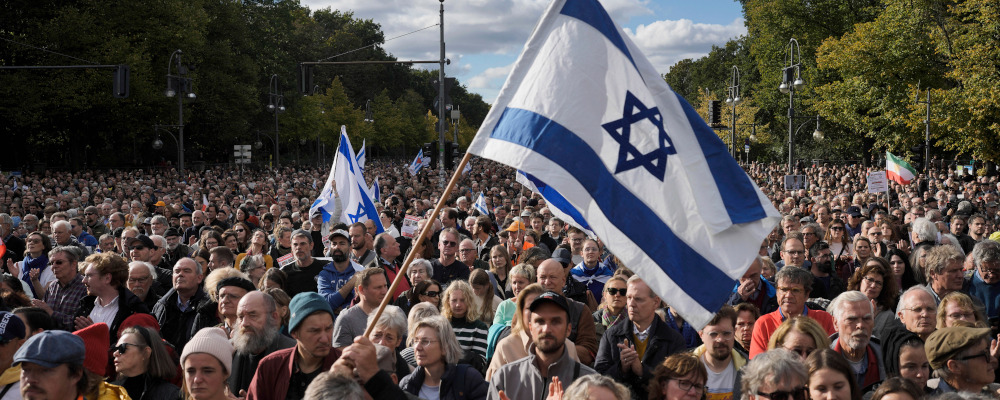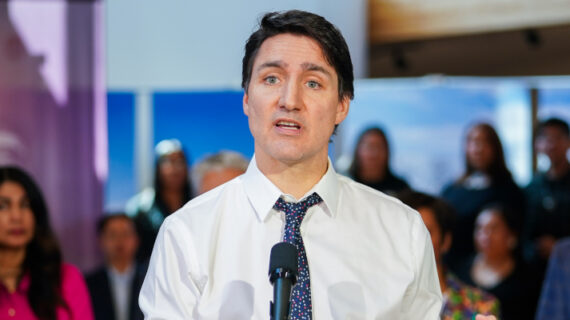In the lead-up to Canada Day I wrote a lament for our country’s atomization and polarization. I bemoaned our decadence, our lack of national unity, and—rather cavalierly—pointed to Israel’s robust patriotism, strong birth rate, and shared sense of purpose to make the case that Canada ought to experiment with a mandatory year of national service, just as is required of young Israelis.
While the October 7th Hamas attack on Israel caused me to pause and approach the matter more soberly, it didn’t fundamentally change my view. In fact, it is increasingly clear that the horrific act of terrorism, and our subsequent inability to properly reckon with it, has revealed the true depths of Canada’s moral relativism. Fortunately, the event that so exposed our flaws can also be a source of inspiration. Israel’s 9/11, while revealing our weakness, calls on us to find courage, and provides us, in the brave reactions of Israelis themselves to the tragedy, with examples to aspire to.
Some thoughtful critics of the disturbing, morally bankrupt Canadian responses to Hamas’ attack on Israel have pointed to a creeping nihilism in the West to explain how mainstream Canadians can defend such evil acts. And there’s no question that a worldview which understands only power, identity, and oppression leads to a shocking inhumanity. But a few wrong-headed opinion leaders alone don’t make for a rotten culture. More concerning in the weeks following October 7th has been the deafening silence of their neutral appeasers. Brushing off tough questions, avoiding taking a stance by appealing to “both sides” and “de-escalation,” the newsroom editors, university administrators, and labour leaders choose neutral amorality when confronted with discomfort and sit idly by as their more radical peers ratchet up their justifications.
Our dominant culture of deference and equivocation seems mostly harmless in times of peace and prosperity when manifestations of evil are subtle. We value pluralism after all. Surely good ideas will win out, we think. Surely our proud history will guide us if ever we have to face an uncertain future. But that uncertain future is here, and as de-colonization discourse takes to the streets our neutral liberal mainstream is struggling to respond. Nowhere is Canada’s moral confusion playing out more dramatically than in the Liberal Party itself, where a leader who flirted with trendy post-modernism when times were easy is struggling to bring his team onside in defence of civilization when times are tough.
The apparent harmlessness of liberal neutrality when the impacts of evil are merely subtle explains our reluctance to take assertive action in favour of a common good. For libertarians like my friends at the Institute for Liberal Studies who opposed my mandatory service proposal, the potential benefits would never outweigh the coercive state power involved in implementing it. And for most Canadians, most of the time, our moral neutrality feels benign. But when world events force us to confront overt evil, it’s clear not only that Canada would fail were it to arrive at our doorstep, but that we cannot even summon the courage to consistently oppose it as it terrorizes our allies abroad.

If there is any benefit to the horrors of October 7th, it is in the fact that overt, unsubtle evil is clarifying—it shakes us out of our stupor and stiffens our spines. Stories from the attack remind us of what is important, and what is at stake. Tales of rape so vicious it broke bones, of an unborn baby cut from its mother’s womb, and of youthful revellers screaming in fear, their young lives cut short, remind us of the vitality of our bodies, their purpose, and their fragility. Tales of mothers losing daughters, fathers searching for sons, and family members burned to death in embrace remind us of the irreplaceable bonds of family, our most sacred relationships. Tales of terrorists crossing into sovereign territory, descending on a music festival and kibbutzim, and murdering thousands in order to make all Israelis feel terror in their own country remind us that in Canada our safety is a great privilege, our democracy delicate, and our geography lucky. We should never wish to witness the kind of evil that leads to war, but when it comes, we should be grateful for the gifts of its clarifications.
And while Canada’s weakness is shocking and concerning, we should take some comfort that that strength is not entirely inaccessible to us. Indeed, Canadian Israelis are summoning the call of their countrymen even today, flying toward bloodshed to fight for what they believe in. They are summoning an ancient virtue, often inaccessible to us neutral liberals. And their fellow compatriots provide ample models for those among us who wish to be inspired by their bravery: a young man throwing himself onto a grenade to spare his girlfriend, a Bedouin man trying to hide Jews from the terrorists who sought them out, a former IDF general leaping into a truck to drive into harm’s way to rescue his son and grandchildren and saving others along the way.
For those of us who have been lamenting Canada’s moral rot and cultural decay, our country’s social response to the events of October 7th—the nihilistic justifications and the neutral liberal equivocation—has felt like an unwelcome reminder. But just as the attack revealed unpleasant truths about the health of our country, it provided helpful hints as to how we might go about healing. If in response to future incidents of evil in Canada and abroad we can summon a shred of the courage shown by Israelis in the face of terror, perhaps we rise above our passive neutrality, reject the proliferation of nihilism’s death cult, and promote a shared vision of Canadian values—maybe even some we’d be willing to fight for.




